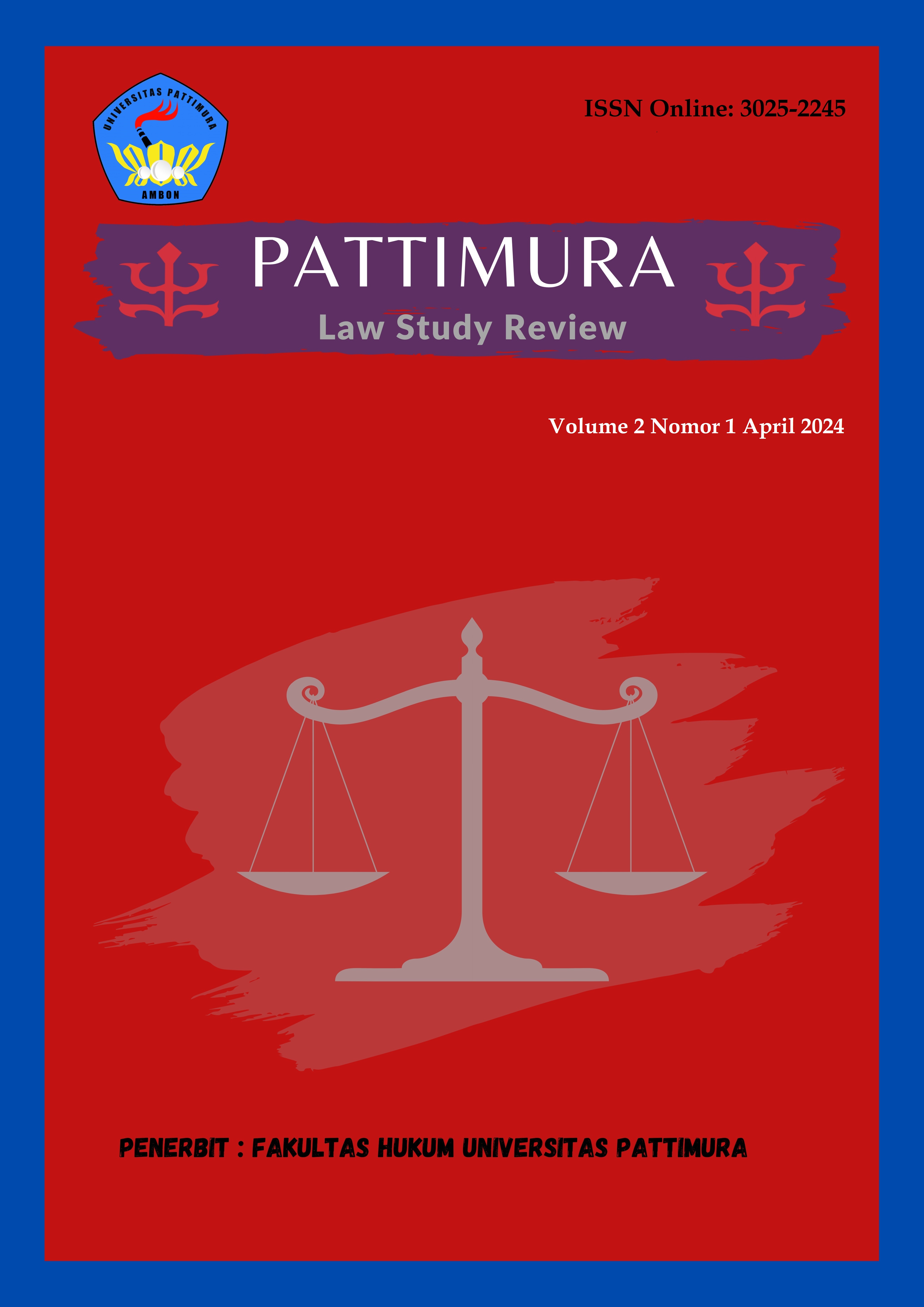Wanprestasi Pelaku Usaha Atas Hadiah Dalam Jual Beli Online
Abstract
ABSTRACT: Default is an act that violates an agreement between two parties. If neither party is able to fulfill its obligations arising from the existing contract, such action may be considered a breach of contract. This is regulated in Law Number 8 of 1999 concerning Consumer Protection and Law Number 11 of 2008 concerning Electronic Information and Transactions. The research method used in this research is normative research carried out using a statutory approach and a conceptual approach. The sources of legal materials used are primary, secondary and tertiary legal materials. The technique for collecting legal materials in this research is by reading and reviewing various kinds of literature related to the research problem and directly related to the problem being studied. Based on the results of this research, consumers have the right to claim losses in buying and selling transactions for the promised gifts which are not fulfilled, so consumers have the right to make a claim for the promised gifts, because the promised gifts did not reach the buyers. Forms of legal protection for buyers against default are divided into two. Namely, preventive and repressive
Downloads
References
Dwi Aryanti Ramadhani. Wanprestasi dan Akibat Hukumnya. Jurnal Yuridis Fakultas Hukum UPN Veteran Jakarta, hal. 42
M. Ikhwan Syarif dkk, potensi perkembangan e-commerce dalam menunjang bisnis di Indonesia, journal of computers and digital business (JCDB), vol 2, No. 1 Januari 2023, p. 11-1
Yudha Tri Dharma Iswara dan I. Ketut Markeling. Kekuatan Pembuktian Surat di Bawah Tangan Dalam Akta Perjanjian Jual-Beli.” Kertha Semaya: Jurnal Ilmu Hukum. Vol. 4 No. 1. Hal. 2
Buku
A.Qirom Syamsudin Meliala, Pokok-Pokok Hukum Perjanjian Beserta Perkembangannya, Yogyakarta, Liberty, 2010
Abdul Halim Barkatullah dan Teguh Prasetyo, Bisnis E-Commerce: Studi Sistem Keamanan dan Hukum di Indonesia, Pustaka Pelajar, Yogyakarta, 2005
Abd. Haris Hamid, Hukum Perlindungan Konsumen Indonesia (Makassar: Sah Media, 2017
Andi Hafidh. Muhammad Jauhar Faudi, Tri Susanti, Dhimas Pritian Alamsyah, Makalah DuniaMaya ( Cyberspace ) Dan Etika Dalam Penggunaannya, 2016
Dikdik M. Arief Mansur dan Elisatris Gultom, Cyber Law, Aspek Hukum Teknologi Informasi,Refika, Bandung, 2005
Hardijan Rusli, Hukum Perjanjian Indonesia dan Common Law, Cet. 2, Jakarta: Pustaka Sinar Harapan, 1996
I. G. Rai Widjaya, Merancang Suatu Kontrak, Bekasi : Megapoin, 2004
J. Satrio, Hukum Perikatan, Perikatan yang lahir dari Perjanjian Buku II, cet. 1, (Bandung: Citra Aditya Bakti, 1995
J. Satrio, Hukum Perikatan. Jakarta: Harapan, hlm. 2011
Janus Sidabalok. Hukum Perlindungan Konsumen di Indonesia. Bandung: Citra Aditya Bakti, 2006
Kartini Muljadi dan Gunawan Widjaja, Perikatan yang lahir dari Undang-Undang (Jakarta: RajaGrafindo Perkasa, 2005
Muhammad Djumhana, Hukum Perbankan Di Indonesia, Bandung: Citra Aditya Bakti, 2000
Richardus Eko Indrajit, E-Commerce: Kiat dan Strategi Bisnis di Dunia Maya, PT. Elex Media Komputindo, Jakarta, 2001
Zumrotin K Susilo, Penyambung Lidah Konsumen, Penerbit: PT Penebar Swadaya, Jakarta, 2003
Online/Word Wide Web
https://www.djkn.kemenkeu.go.id/artikel/baca/15872/Mau-Bikin-Perjanjian-Yuk-Simak-Hal-Hal-Apa-Saja-yang-Harus-Dipenuhi.html
Tokopedia, Kamus Keuangan_Hadiah diakses dari https://kamus.tokopedia.com/h/hadiah/
https://www.pajak.com/pajak/pajak-atas-hadiah-jenis-tarif-dan-cara-hitung/
Copyright (c) 2024 Madeline A Rajalabis, Adonia Ivonne Laturette, Sarah Selfina Kuahaty (Author)

This work is licensed under a Creative Commons Attribution-NonCommercial 4.0 International License.
Authors who publish their manuscripts in this Journal agree to the following conditions:
- The copyright in each article belongs to the author, as well as the right to patent.
- Authors are able to enter into separate, additional contractual arrangements for the non-exclusive distribution of the journal's published version of the work (e.g., post it to an institutional repository or publish it in a book), with an acknowledgment of its initial publication in this journal.
- Authors are permitted and encouraged to post their work online (e.g., in institutional repositories or on their website) prior to and during the submission process, as it can lead to productive exchanges, as well as earlier and greater citation of published work.
- Authors have the right to self-archiving of the article (Author Self-Archiving Policy)













